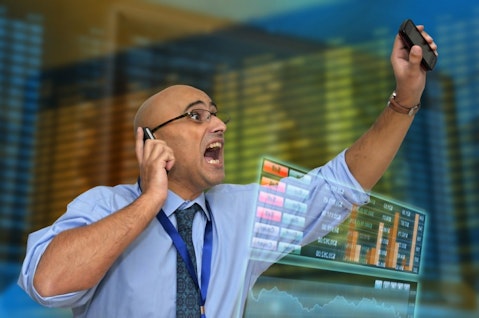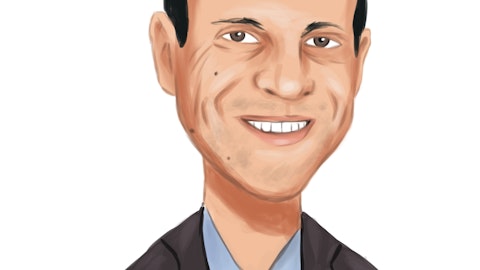2019 A Year To Forget For Hedge Funds (Benzinga)
It was a difficult year for the hedge fund sector, as the industry is poised to end the year with more closures than launches for the fifth straight year, according to Bloomberg. Ackman A Winner In 2019: Total assets under control by hedge funds appear to have hit a plateau of near $3 trillion a few years ago, which implies the industry “isn’t going away” but is “definitely not growing,” Bloomberg’s Katherine Burton reported. Some of the stock funds managed to perform well in 2019, such as Bill Ackman‘s Pershing Square, which is poised to end the year with a 50% gain, Burton said.
Einhorn’s Greenlight Gains 14% for Year After Dip in December (Bloomberg)
David Einhorn’s Greenlight Capital fell 0.3% across its hedge funds in December, trimming returns for 2019 to 13.8%. Greenlight, which follows a value-oriented investing strategy, posted its results in a client update seen by Bloomberg. The S&P 500 Index returned 31% in 2019 with dividends reinvested. Despite the down month, Einhorn rebounded from his worst year ever in 2018, when his main fund sank 34%. Early in 2019, he vowed to rework his portfolio by making fewer, more concentrated investments.
Steve Cohen One of Few Bright Spots in Bad Year for Hedge Funds (NYPost.com)
This year, only a select handful of winners materialized, including: Point72 Asset Management’s Steve Cohen, the potential new owner of the New York Mets, had a home run in 2019 with 13 percent returns as of the end of November. His investment wins were overshadowed, however, as news broke in early December that the billionaire was nearing an agreement to become the majority owner of the Mets in a deal that’s widely expected to inject fresh energy – and loads of cash – into the losing team. Bill Ackman’s Pershing Square Capital soared more than 50 percent for the year, sources said. That’s a major recovery for Ackman, who was left for dead in the middle of 2018 after a disastrous five-year, $1 billion bet against nutrition company Herbalife. Ackman has credited his fund’s comeback to his new wife, MIT professor Neri Oxman, whom he wed in January.

Luis Louro / shutterstock.com
ETFs, Hedge Funds Pile Into Platinum on Brightening Outlook (Bloomberg)
Investors have taken a shine to platinum. Long-only exchange-traded funds focused on the precious metal used to curb emissions from diesel cars attracted $850 million this year through Monday, the biggest annual inflow. Hedge funds and other large speculators boosted their bullish bets on platinum to the highest in more than three years. Platinum has fallen out of favor among investors after Volkswagen AG’s emissions-cheating scandal in 2015 prompted commuters to turn away from diesel vehicles.
2020 – Make It Your Business Not to Declare (prematurely) Any Player “Done” (Speechwriting-Ghostwriting.typepad.com)
2020 – Make It Your Business Not to Declare (prematurely) Any Player “Done”. During 2019, investing in the stock market generally had been a better bet than participating in a hedge fund. According to Hedge Fund Research, reports the New York Post, the average return was about 8.5% versus 30% for the S&P 500. More than 500 hedge funds liquidated. And less than 500 new ones were launched – a long-time low. But there had been some bright spots. One-time major player when he headed SAC Steve Cohen has had a comeback – sort of. That was with his Point 72. The gain during 2019 was at about 13%. But that is significantly lower than the gain of SAC in 2013. That was 20.1%. Cohen launched 72 when he was allowed back into the game of having outside investors. Legal powerhouse David Boies negotiated that with the SEC.
Poseidon Co-Founder Emily Paxhia On The Cannabis Hedge Fund’s 2020 Outlook, Investment Criteria (Benzinga)
Emily Paxhia, a co-founder of what is thought to be the longest-running cannabis investment fund, Poseidon Asset Management, had the courage to take a chance on a new industry when she decided to pursue a career in cannabis. In the six years since its inception, Poseidon Asset Management has more than $105 million in assets under management and an IRR of 70% net of fees. Its first fund outperformed its target return by more than double, and Posiedon is actively raising capital for its second fund.





